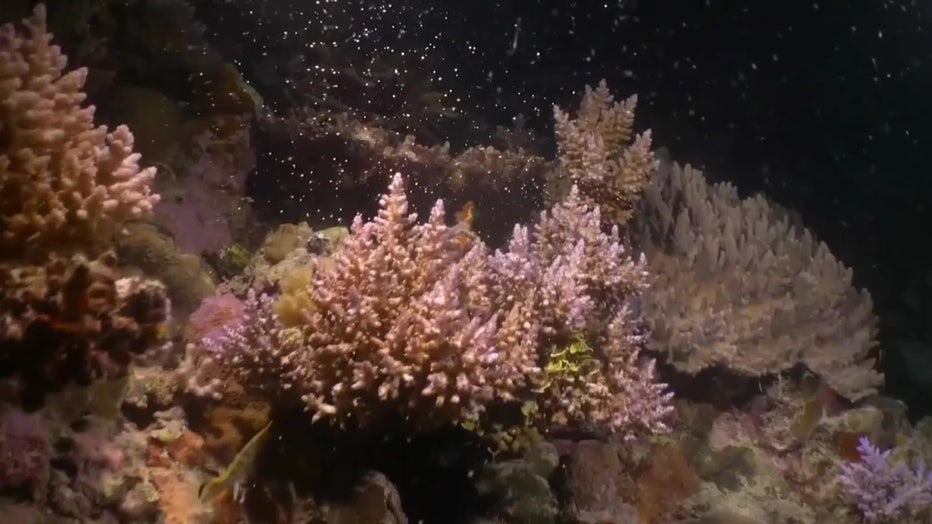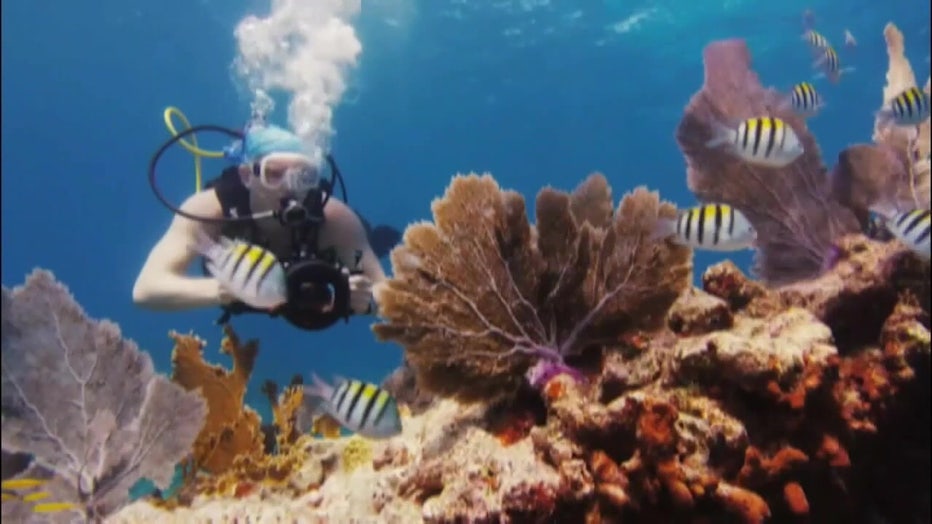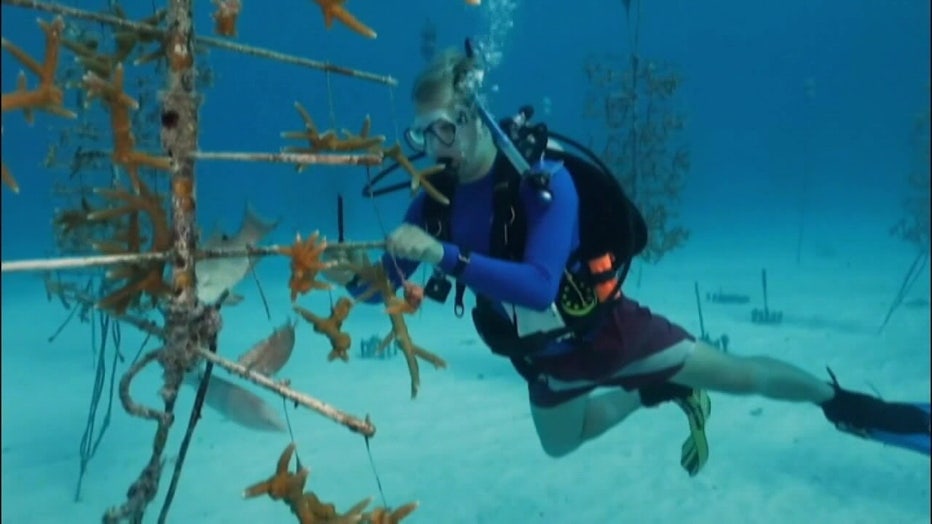Florida scientists working to help coral reefs adapt during heat wave
TAMPA, Fla. - The ocean water off the Florida coast recently reached temperatures in the 90s in July, and that has some Tampa Bay marine experts concerned about extreme coral bleaching this summer.
"This year is much earlier than most, and it might be much more severe than most," said Dr. Jason Spadaro, a staff scientist and program manager for coral reef restoration at Mote Marine Laboratory and Aquarium. "It’s really alarming when we start seeing these kinds of environmental conditions showing up and threatening the existence of those corals."
Coral reefs and marine life off the coast of Florida are dealing with unprecedented higher water temperatures due to the summer heat wave. When water gets too hot for corals, they get rid of the organism that gives them their color and provides a food source to help them survive. That results in coral bleaching and lack of food.
READ: Mote Marine receives NOAA grant to help restore 200,000 corals in Florida Keys
"So, a high temperature spike if it was just a day or two, isn’t really something that we would be particularly alarmed with. It’s that sustained high temperature that is really dangerous for the corals," said Spadaro, who added what can happen if the high temperatures keep up. "We haven’t seen a lot of bleaching, but we have seen the effects of high temperature. We’re keeping a very close eye on the coral and Florida’s coral reef for bleaching that we expect will be starting here very soon."

High temperatures are impacting sealife.
The question now is how long they can survive the current heat wave.
"We have these corals who have already been stress tested throughout the years. We had massive bleaching events in 2014 and in 2015 in the Keys," said Rachel Morgan, a senior coral biologist, Florida Aquarium at Apollo Beach. "The corals that we have out there are likely the corals that survived all of that, and here they are going through it again. So, our hope is that they can make it a bit longer."
Corals aren’t the only marine life threatened right now.
RELATED: Earth sees hottest day on record for third straight day
"Fish and other organisms are feeling this just as much as us," said Morgan. "It doesn’t affect just coral but all organisms in the ocean. The unfortunate thing is coral can’t swim away to try to find a cooler place and try to find some shade and get a little bit of an area of less stress."

Corals could starve due to higher than normal temperatures.
Morgan said healthy coral matters for all fish, like grouper, for example.
"Those groupers may spawn just outside of a coral reef in the open ocean and then those larvae go to a mangrove and the seagrasses and then eventually make their way back to coral reefs," said Morgan. "All of these ecosystems are interconnected and if we lose one piece of it we can lose a lot more than we realize."
READ: Suspected sea life poachers steal hundreds of protected animals from Manatee County waterways
Aquariums and marine labs in Tampa Bay are working to restore balance and help coral adapt to the changing climate.
"Our whole kind of shtick is that we are out planting genetically diverse individuals hoping that something sticks, hoping that somebody can change with our changing ocean," said Morgan.

A diver examines coral amid a heatwave.
Mote Marine shared that local residents and visitors can do their part to help the oceans by learning about how water temperatures impact marine life, participating in beach cleanups and refraining from littering. Spadaro said scientists and biologists are planning for what may happen with the changing climate.
"We can absolutely invest and really push on that resilience aspect of our research to try and plan for future events and build in the ability of the corals themselves to adapt to those stresses," said Spadaro.
Florida’s coral reefs generate an estimated $2 billion in annual revenue and support 70,000-plus jobs, so there’s also concern about ecotourism impacts. Without healthy corals, the reefs will no longer provide areas for recreation and tourism as well as habitat for seafood or coastal protection to beaches.

